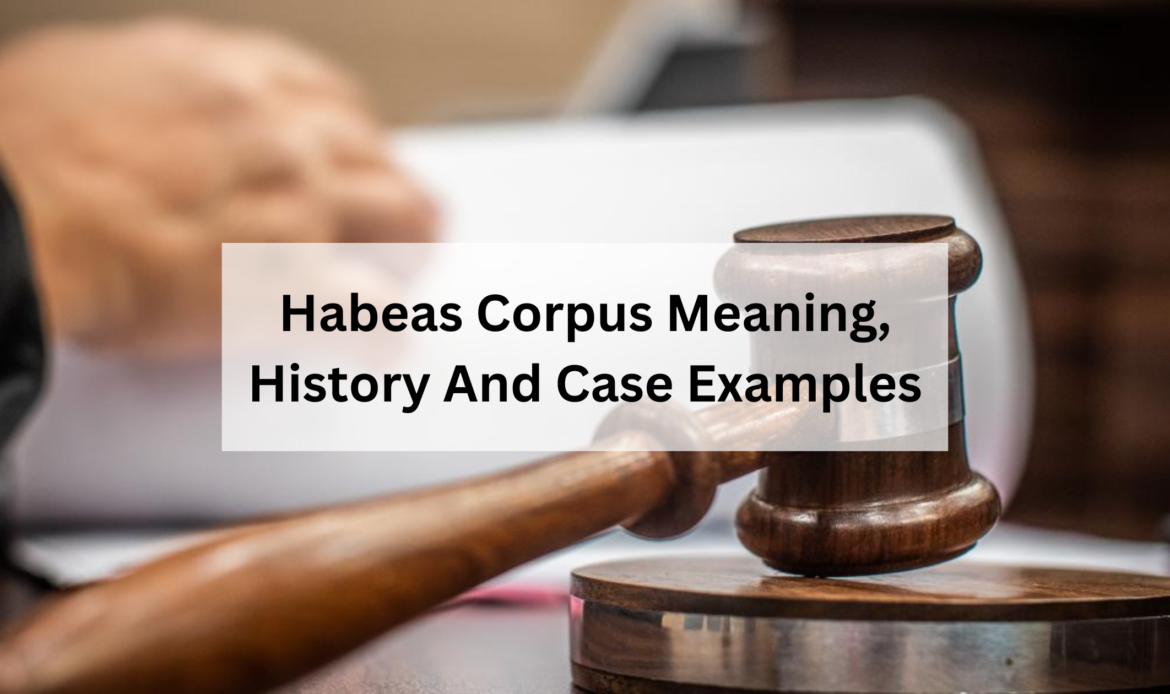Have you ever wondered what protects your freedom when someone accuses you of a crime? How can you challenge being locked up if you believe it’s unfair? Well, that’s where habeas corpus steps in! Yes, that’s true!
It’s like a superhero for individual liberty. In this blog, we’ll dive into the meaning, history, and real-life examples of habeas corpus in Indian law. So, buckle up as we embark on a journey to unravel the power of this ancient legal principle!
Habeas Corpus: Meaning And History
At its core, habeas corpus translates to “produce the body” in Latin. It’s a legal recourse enabling individuals to challenge the legality of their detention or imprisonment before a court. This essential right ensures that no one is unlawfully deprived of their freedom.
The origins of the term trace back to medieval England. It emerged as a response to the arbitrary detention practices of the monarchs. Over time, it evolved into a cornerstone of constitutional law. It affirms the principle as a bulwark against tyranny and injustice.
The Magna Carta (1215) And Development Of Habeas Corpus In India
The Magna Carta, a seminal document in legal history, laid the groundwork for habeas corpus. It declared that no free man could be imprisoned without lawful judgment by his peers or the law of the land. This further established the right to due process.
India inherited the concept of habeas corpus from British colonial rule. Post-independence, it was enshrined in the Constitution as a fundamental right (Article 22). The Indian judiciary has played a pivotal role in upholding this right, ensuring its application in safeguarding individual liberty.
Key Provisions
Article 22 of the Indian Constitution guarantees various safeguards against arbitrary arrest and detention. It includes the right to be informed of the grounds of arrest and the right to legal representation. It also includes the right to challenge the legality of detention before a court.
Landmark Cases
We hope that now you’ve understood the concept of habeas corpus and its history. Now, here are some of the important cases related to that principle:
- A.K. Gopalan v. State of Madras (1950): This case established the scope and interpretation of preventive detention laws in India. This emphasized the importance of judicial review in safeguarding individual liberty.
- ADM Jabalpur v. Shiv Kant Shukla (1976): Popularly known as the ‘Habeas Corpus Case,’ this controversial ruling during the Emergency period suspended the right to habeas corpus. However, it sparked widespread criticism and led to a reaffirmation of fundamental rights after the Emergency was lifted.
- Kharak Singh v. State of Uttar Pradesh (1963): In this case, the Supreme Court upheld the right to privacy as an integral aspect of personal liberty. This further reinforced the importance of habeas corpus in protecting individual freedoms.
Current Relevance
In contemporary India, habeas corpus remains a vital tool. It upholds the rule of law and ensures governmental accountability.
Its application continues to evolve in India with time. The principle is applied especially in cases involving issues of national security and civil liberties.
Final Words
Overall, habeas corpus stands as a beacon of hope for those unjustly deprived of their freedom. Rooted in history and enshrined in law, it serves as a bulwark against arbitrary power and a cornerstone of democracy. If you want any legal guidance regarding this principle, contact the best law firm in Kolkata. At Kshetry and Associates, we have trusted legal advisors in Kolkata.

